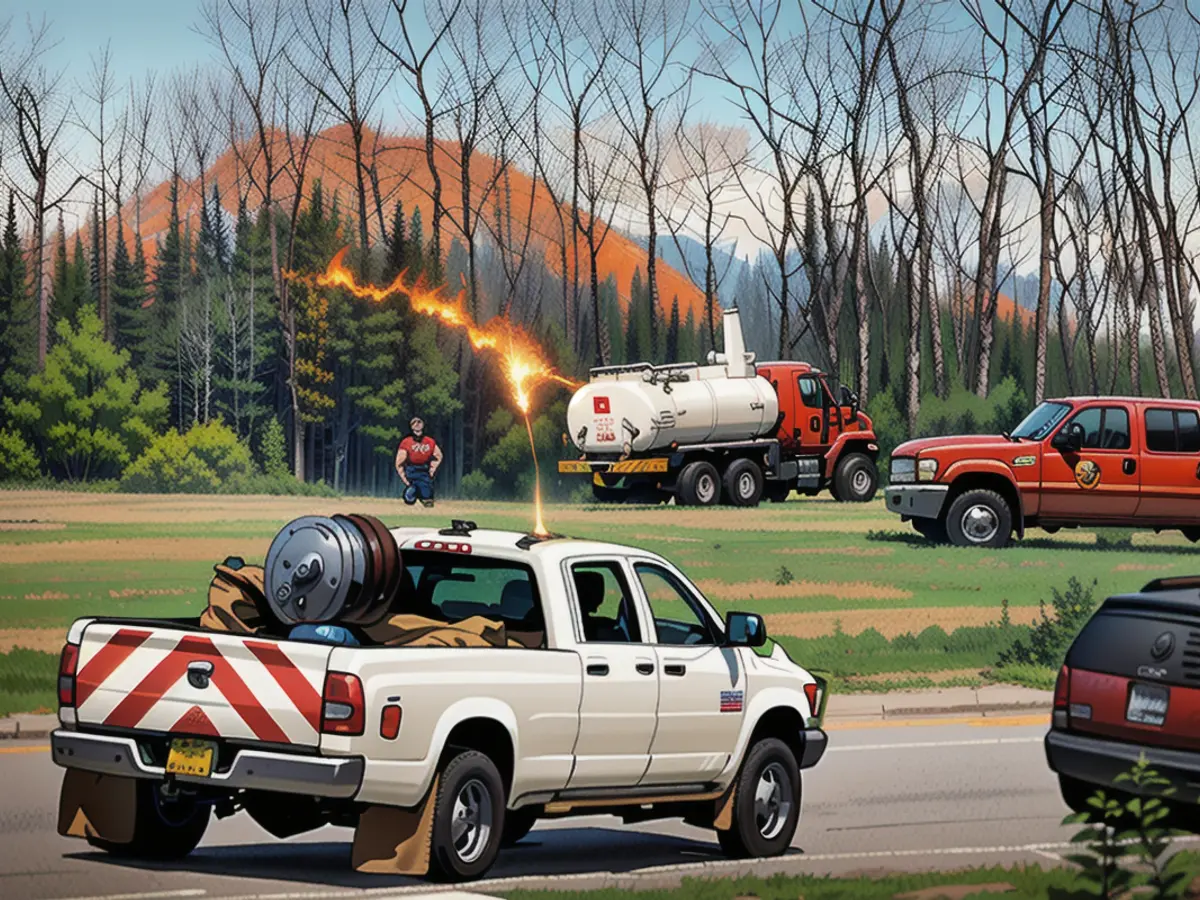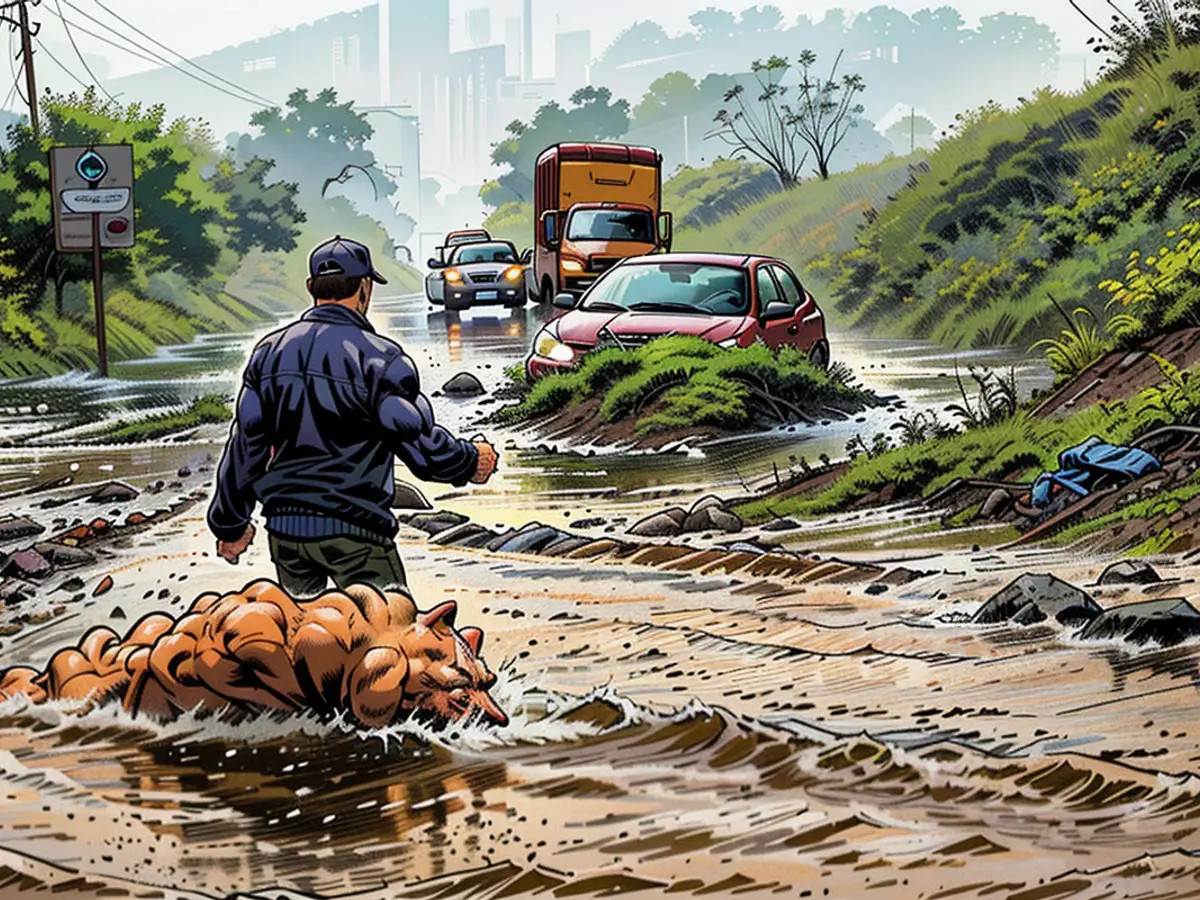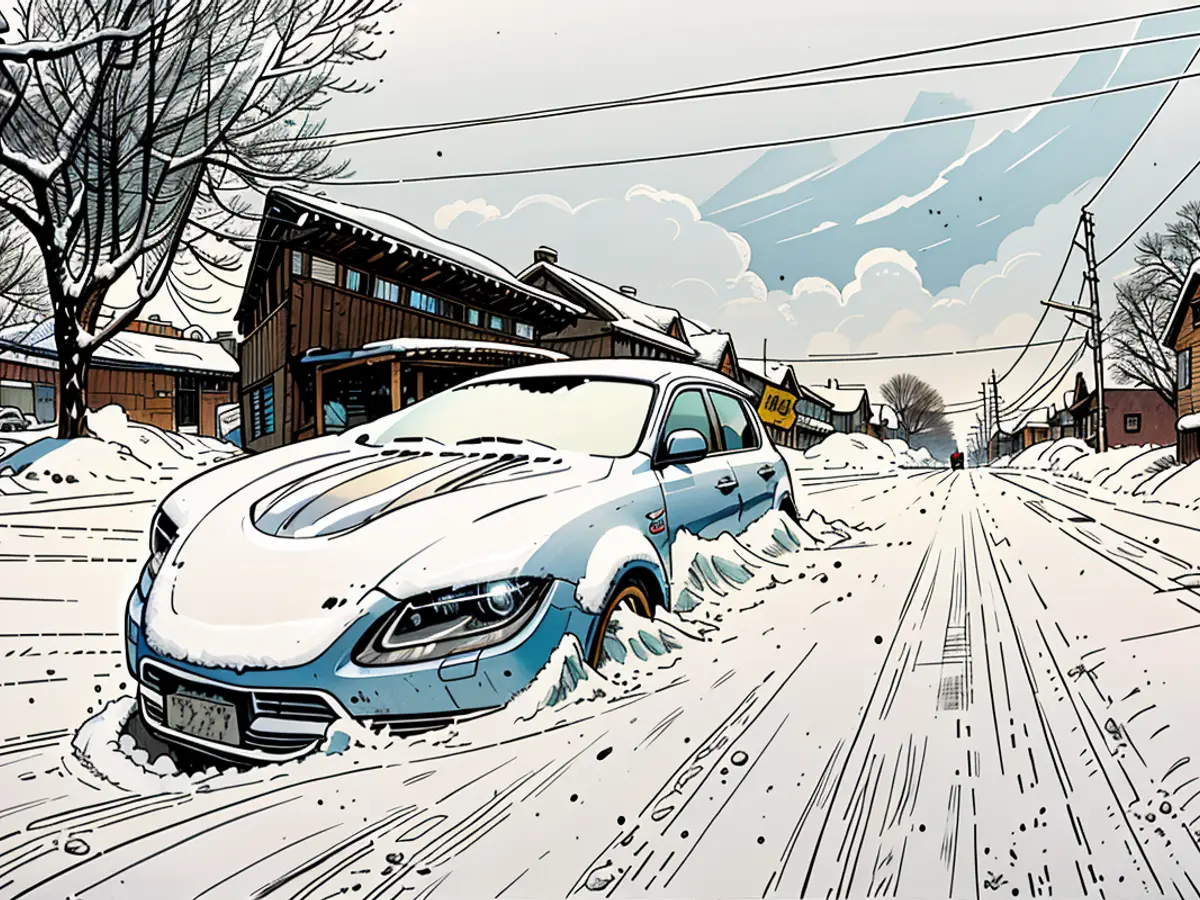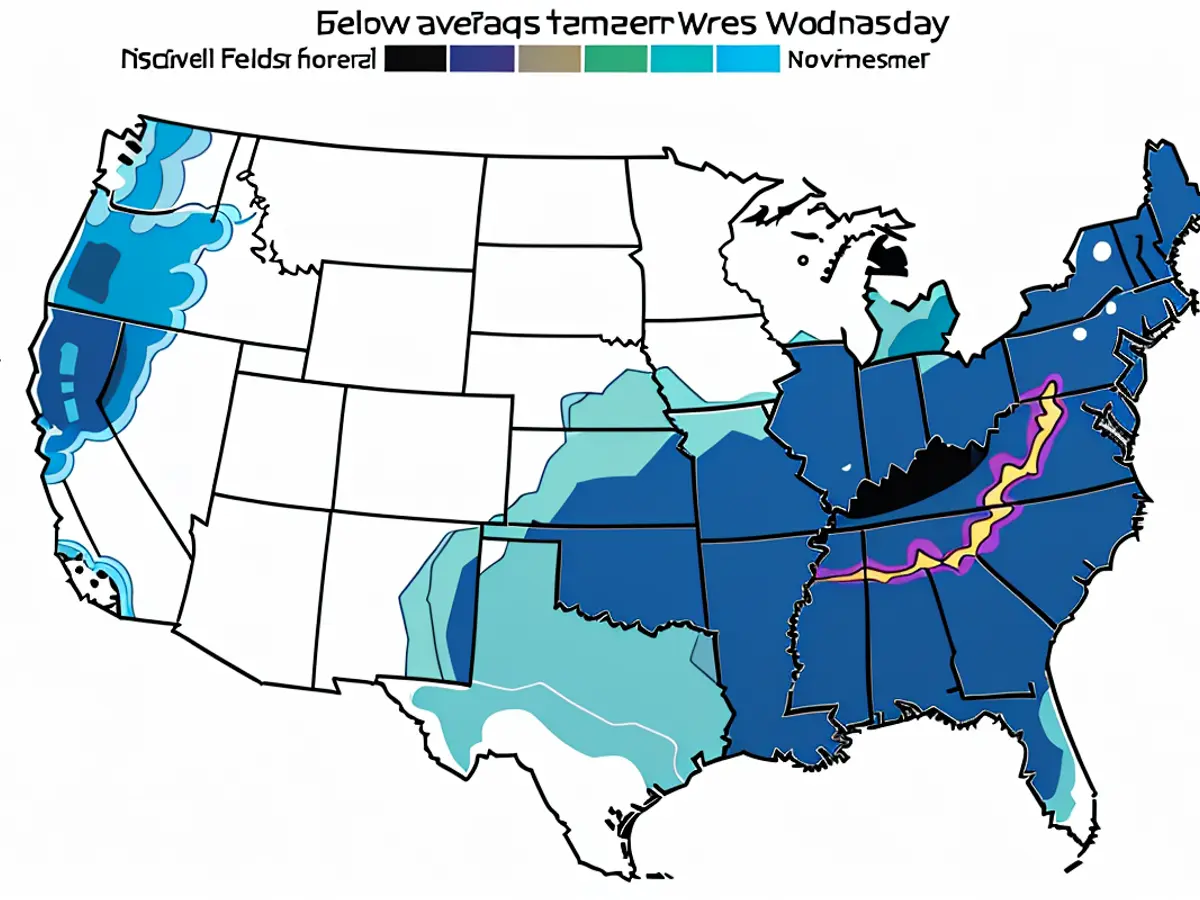Approaching blazes prompt mass exits of Canadians; others could stay away until next week.
Wildfires in the Canadian countryside are currently alarming authorities and citizens alike, with firefighters combating over a hundred blazes across the nation. However, in some regions, these firefighters may find temporary relief as a massive storm is about to hit the western and central areas of Canada, bringing with it a heightened likelihood of rain and cooler temperatures.
Despite this imminent threat, numerous hazardous fires still rage, some of which are just miles away from populated neighborhoods. Fire officials have cautioned that even the smallest change in environmental conditions or wind direction can endanger homes and businesses in the surrounding areas.
Approximately 6,000 people have fled from Fort McMurray in Alberta since Tuesday, as a fire spans over 51,000 acres and lies within a mere 5 miles of the city's perimeter. The regional municipality wants people to be prepared to be away from their homes for at least two weeks, potentially even longer.
As of Wednesday, the fire near Fort McMurray had not fully subsided, but winds were expected to start pushing the blaze away from the city and its major arteries according to Josee St-Onge, an officer from the Alberta Wildfire Information. Rain showers are also set to arrive in the area Wednesday night, bringing up to an inch of rain through the following day.
24/7 firefighting endeavors have aided in mitigating the fire's intensification. This includes water helicopters equipped with night vision, and firefighters - many of whom are defending their very own communities - working graveyard shifts.
Alberta Premier Danielle Smith commended the firefighters for their dedicated efforts, stating in a public address Wednesday, "To the firefighters putting their lives on the line to save Fort McMurray and other parts of the province, we can't thank you enough and fervently hope for your safe return."
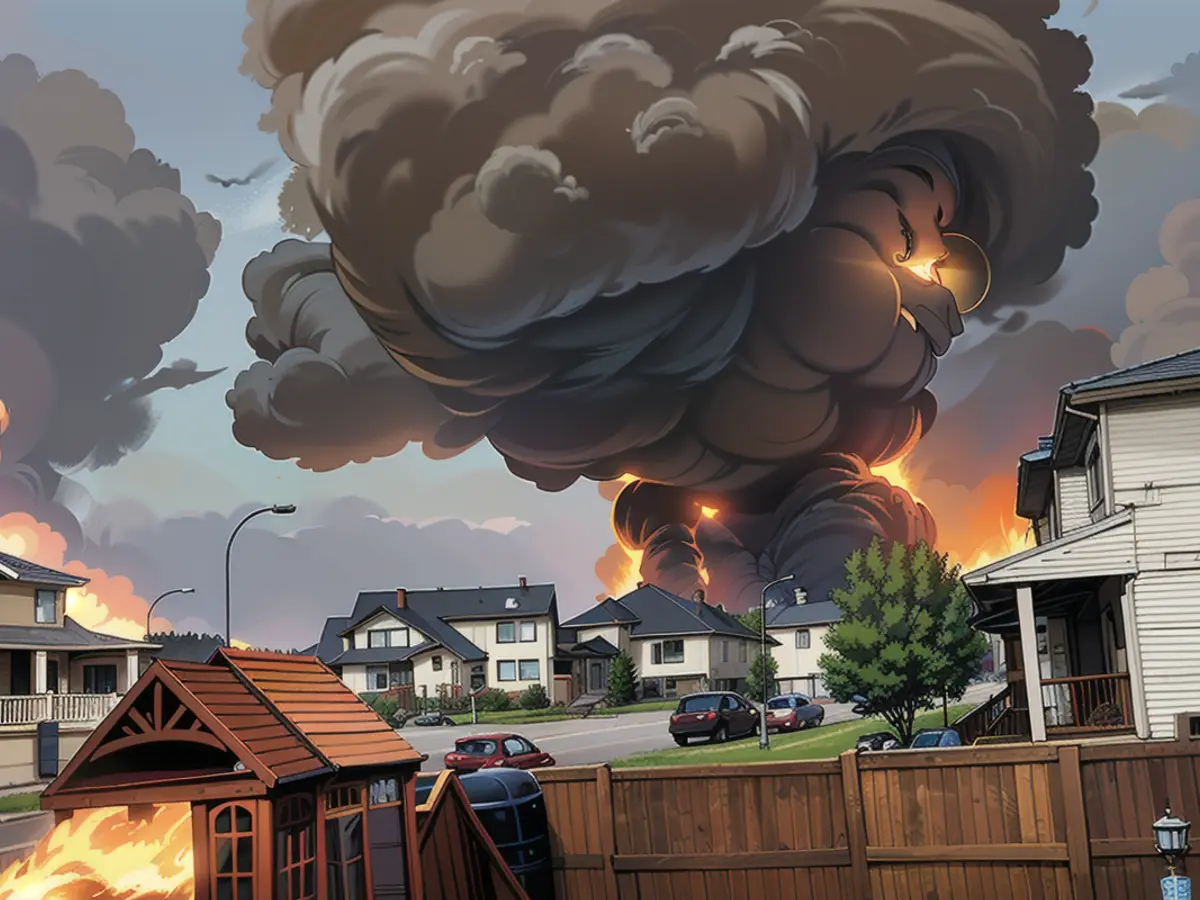
The fire near Fort McMurray has brought back haunting memories for residents who have experienced "The Beast". This 2016 fire compelled 90,000 residents to evacuate and resulted in millions of dollars in property damage.
Fort McMurray resident, Jocelyn Routhier, captured two unsettling photos taken eight years apart, both of which show her neighborhood as the fire intensified. In a social media post, she expressed her trepidation using the images: "This is a déjà vu that I'd rather not experience. Let's hope it doesn't become a reality."
The influx of new fires continues to hinder Canada's fire departments, while several out-of-control blazes imperil populous areas, resulting in hundreds of evacuated residents scrambling for accommodations in hotels, emergency shelters, as well as camp and RV sites.
Mackenzie Spenrath, who is among the nearly 5,000 evacuated from Fort Nelson, British Columbia, described his anguish in a conversation with CNN affiliate CBC: "I'm glued to the news and social media, always trying to find out if my town is intact."Fort Nelson's fire crews are anticipated to get a slight sprinkle of rain Wednesday night and through Thursday evening. However, this is far from enough to rectify the drought conditions and eliminate the burning flames.
Similarly challenging circumstances are plaguing firefighters combatting a fire that is perilously close to the Cranberry Portage community in western Manitoba. Of the 580 people evacuated in total, there is no predicted return date.
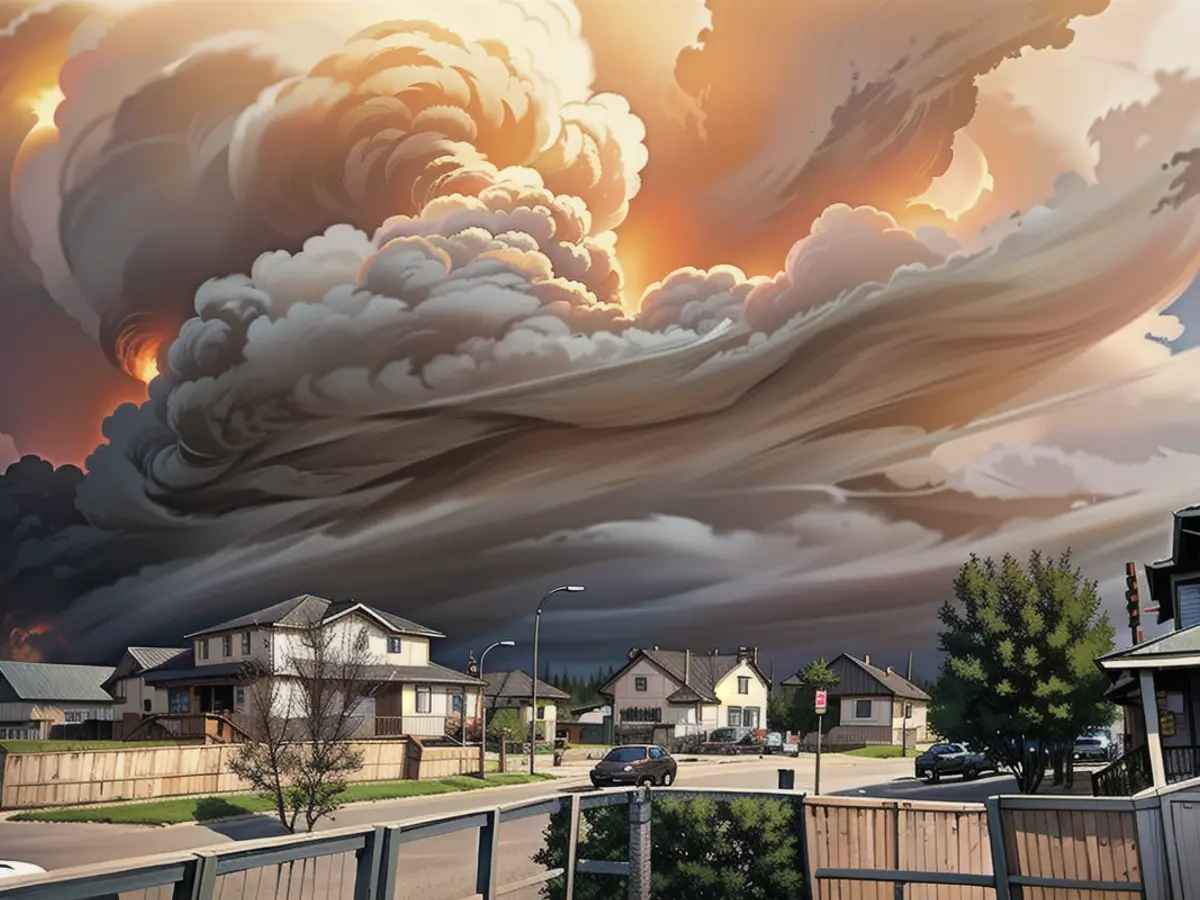
Fort McMurray resident Jocelyn Routhier photographed the 2016 and May 2024 fires from the same spot on her porch.
Manitoba Wildfire Service director Earl Simmons spoke out on the gravity of the situation to CBC: "Because the conditions are so severally dry up there, the fires burned down very deep into the earth. Thus, the firefighters must excavate significantly into the ground themselves to extinguish the fire. We're not simply speaking about a few inches; it's about meters worth of digging in certain locations."
The dry climate that's fanning Canada's wildfires is intensified by the consequences of human-caused climate change.
"This area has endured multiple years of drought, with an underwhelming snowpack this past winter," Benjamin Boghean, a fire behavior specialist for the BC Wildfire Service, described. "As a result of this, the forests in the Fort Nelson zone are highly responsive to new fire starts and quick spreading fires."
Environment Canada predicts that climate change's impact will perpetuate larger and more intense fires throughout Canada.
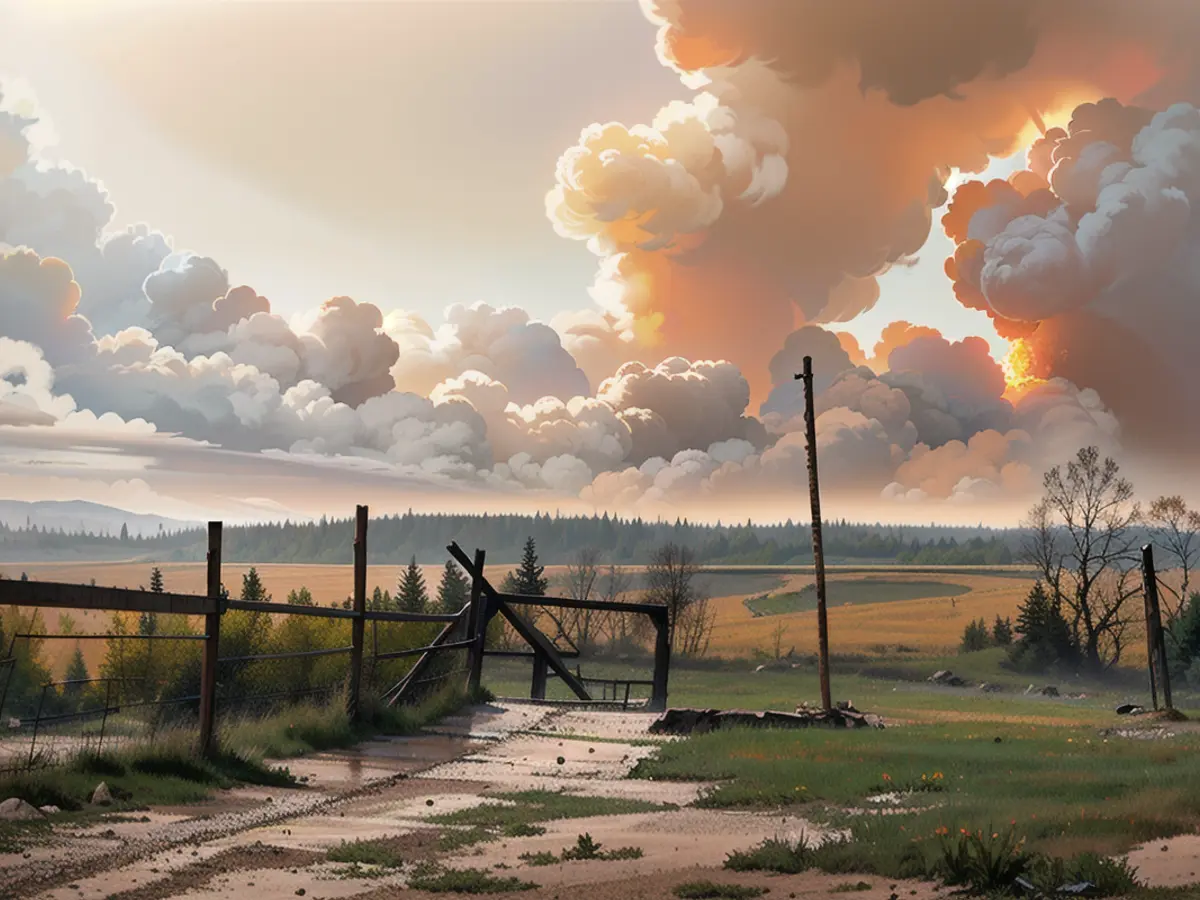
Read also:
- Rain expected again: The situation in the flood areas remains threatening
- Continuous rain until Thursday: Concerns about collapsing dykes are growing in the flood areas
- Flood situation remains tense - more rain forecast
- Flood situation remains tense - weir on the Elbe is opened
In response to the ongoing wildfires, some evacuated residents are seeking temporary shelter in hotels, emergency shelters, and camp/RV sites. Despite the forthcoming rain, the dry conditions in Fort Nelson, British Columbia, are far from sufficient to extinguish the burnings flames.
Source: edition.cnn.com
